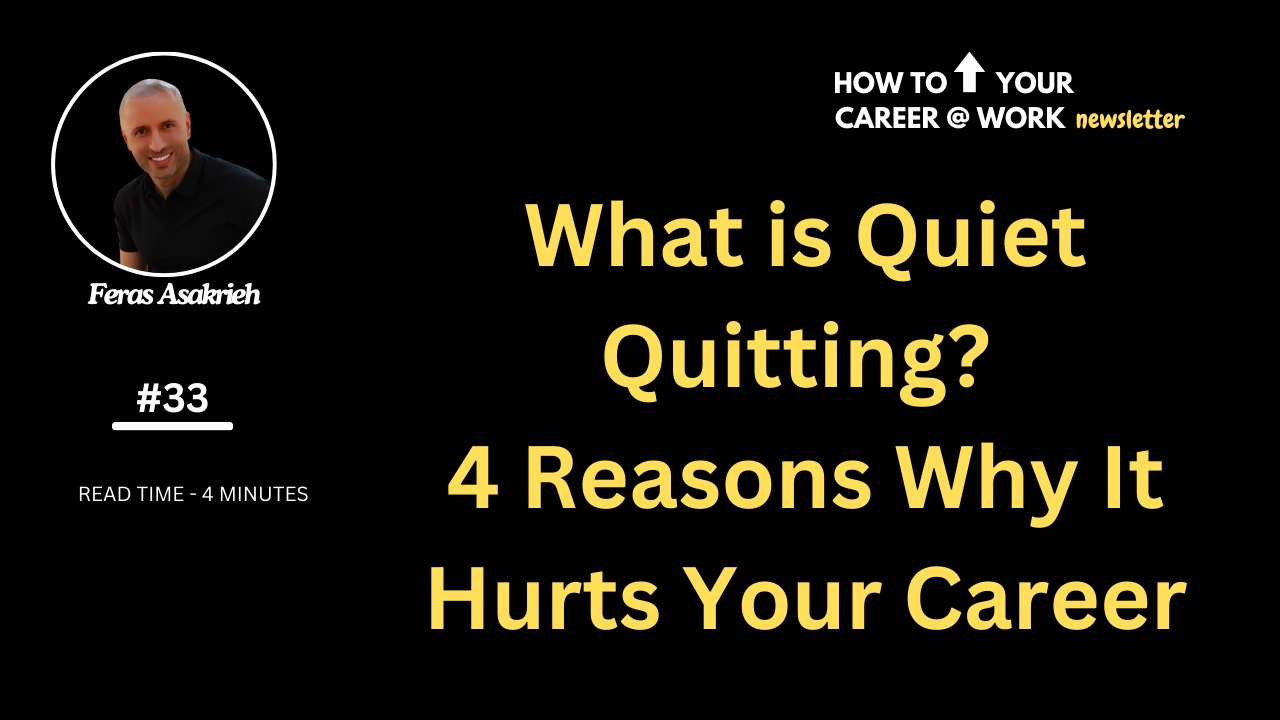
What is Quiet Quitting? 4 Reasons Why It Hurts Your Career
READING TIME - 4 MINUTES
“Quiet quitting” has been making the rounds as a workplace buzzword, but what does it really mean?
It’s not about resigning silently; it’s about doing the bare minimum at work—delivering what’s required but with no extra effort or engagement.
While it might seem like a way to reclaim work-life balance, it can quietly work against you in ways you might not expect.
Why does it matter?
Because how you approach your work today significantly impacts your career tomorrow.
Quiet quitting may feel like a short-term fix, but it could have long-term consequences for your professional growth and reputation.
Unfortunately, many people fall into this trap as a response to burnout, frustration, or a lack of recognition at work.
But here’s why it’s not the best strategy and what you should consider instead.
Reason 1: Your Work is Always Speaking for You
Even when you’re disengaged, your work leaves a lasting impression.
If you’re coasting, it shows.
Leaders notice who’s proactive and reliable, and quiet quitting can brand you as someone who lacks drive.
This can hurt your chances for promotions, stretch assignments, or even external opportunities.
Reason 2: It’s a Missed Opportunity to Build Your Reputation
Every project, task, or meeting is an opportunity to build your personal brand.
Going above and beyond—even in small ways—sets you apart and builds trust with your colleagues and leaders.
Quiet quitting sends the message that you’re not invested, which can tarnish your reputation.
Reason 3: Career Advancement is About Relationships, Not Just Results
Quiet quitting isolates you from the very people who could champion your career.
Building relationships with your manager, colleagues, and other stakeholders often requires more than just completing your tasks.
When you disengage, you miss out on mentorship, collaboration, and advocacy that could accelerate your career.
Reason 4: It Limits Your Growth Potential
When you do the bare minimum, you’re not challenging yourself.
Growth comes from stepping outside your comfort zone, taking on new responsibilities, and learning from those experiences.
Quiet quitting keeps you stagnant, which could leave you feeling unfulfilled in the long run.
The truth is, we’ve all felt undervalued or overworked at some point in our careers.
But instead of quietly quitting, the better approach is to address the root cause of your disengagement.
Talk to your manager, set boundaries if you’re overwhelmed, or explore opportunities to align your work with your strengths and passions.
Your career is a reflection of the effort and energy you put into it.
While it’s crucial to maintain work-life balance, quiet quitting shouldn’t be your solution.
Instead, focus on how you can recalibrate your approach to work in a way that supports both your well-being and your long-term goals.